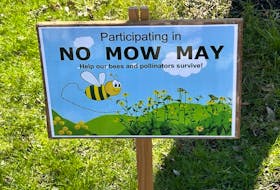COVID-19 and panic buying have gone hand in hand across the globe.

Perhaps, the only thing that seems to have spread faster than the virulent itself is fear. Fuelled by an information pandemic, people flocked to markets and stores to stock up on needs and wants. Here is a round up of some interesting trends.
United States of America
It shouldn’t come as a surprise but the demand for guns and ammunition sales has been virtually unprecedented in the states.
Consumers have been gravitating towards target guns leading to a surge in the sales of AR-15 semi-automatic assault-style rifles. Social media and news, that contribute to the anxiety and fear around the pandemic, are attributed to be a major contributor to the rise of gun sales.
What remains scary is that after car crashes, firearms happen to be a leading cause of children’s death in the U.S. (The Facts on the US Children and Teens Killed by Firearms).
Atlantic Canada
In our neck of the woods, stockpile strategy saw lines for toilet paper and hand towels.
Hand sanitizers quickly evaporated from stores.
Storm chips, cigarettes and beer were the currency for bartering in a Snowmaggedon filled Newfoundland but what remains different in the buying pattern is a jump towards survival essentials.
Indonesia
Phytopharmaceuticals and phytomedicine have been passed down generationally in many southeast Asian countries and Indonesia is no exception.
Here, the pandemic has caused people to rush to age-old, time tested remedies such as Jamu. Jamu, a traditional herbal tonic, is prepared with Javanese turmeric, red ginger, lemongrass and cinnamon. Ingredients such as red ginger have meteorically risen in price causing stress to Jamu vendors that buy, prepare and sell the tonic for a living.
The drink rose in popularity around COVID due to its effectiveness in the past in alleviating symptoms of bird flu.
What we are forgetting
Situations, such as these, are triggering for people that have seen the atrocities of war. It puts into perspective what ‘panic’ means in panic buying.
Afghanistan has roiled in turmoil for the last several decades. Landlocked, seeped in political crisis and insurgency, a pandemic such as this, resurfaces the tensions and trauma of a difficult past and complex present.
Now, with Pakistan and Iran sealing their borders, the soaring cost of basic commodities is a reminder of the time when the rivalry amongst Mujahadeen factions for turf caused the trade route closures and left the population starving and so, when a haggling customer and a non-budging trader, fight over the price of flour, ghee and sugar, rest assured that, for them, the pandemic and its effects are truly profound.
And what we need to remember
War and its aftermath leaves millions displaced that are often forgotten in a moment of crisis such as this.
Moria Refugee Camp, Greece
Some 20,000 people, their dilapidated tents and tarpaulins, inhabit the largest camp for refugees and migrants in Europe.
Reports have streamed, even before the COVID outbreak, of despicable hygiene conditions that the inhabitants are subjected to.
Taking matters into their hands, with no mass distribution around, four Afghan women – residents of the camp – are volunteering their time to sew face masks for the camp’s population. As people in Europe and beyond hoard toilet paper, hand towels and sanitizers, the people of Moria Refugee camp continue to share a single sink, a stench infested air and densely packed quarters.
In the event that there is an outbreak, the Greek government plans to seal off the camp for two weeks with a fence it intends to build around the camp.
Cox’s Bazaar, Bangladesh
Much like Moria, Cox’s Bazaar is home to displaced Rohingya’s where over 850,000 individuals are living in a densely populated and unsanitary conditions.
Access to clean water and soap to wash hands and waste disposal remain major issues. With overstretched and under-resourced health systems, even here, women refugees have taken charge and set up health units for awareness.
The women are part of a network of volunteers that are teaching children about the importance of cleanliness and hygiene.
There hasn’t been a COVID case inside the camp, yet. Measures, as the ones stated above, however, small are contributing to containing the outbreak.
The Privilege of Panic Buying
We live in a world where every two seconds roughly one human being is forcibly displaced as a result of conflict and persecution. They live in conditions where, according to Doctors Without Borders, should there be an outbreak it would be impossible to control.
We know this but in times like this, where we complain about working from home, the shut down of the liquor store or the lack of toilet paper, it needs to be said that we’re in an incredibly fortunate situation.
But that isn’t enough.
Let’s also recognize what panic buying truly means and why, in many places across the world, it is a disservice to use a term that reeks of privilege.
Prajwala Dixit is an Indian-Canadian engineer, journalist and writer in St. John’s, NL who writes a column for the SaltWire Network. When she isn't engineering ways to save the world, she can be found running behind her toddler, writing and volunteering. Follow her and reach her at @DixitPrajwala .









